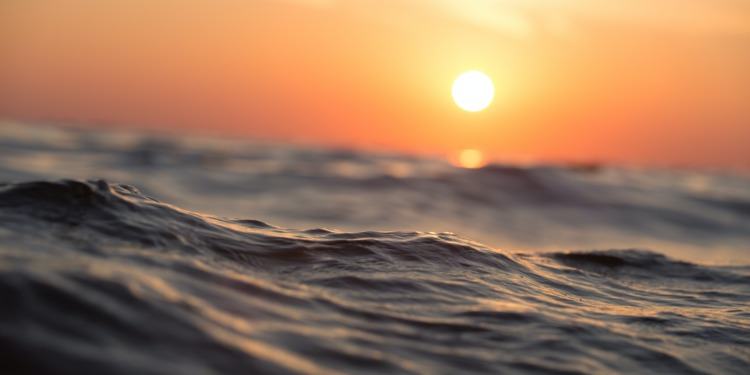High temperatures and heatwaves across the globe saw records broken in July 2023 on land and in the oceans.
The oceans serve as the Earth’s heat reservoir, absorbing substantial amounts of thermal energy as a result of their continuous interaction with the atmosphere.
Under specific conditions, prolonged periods of unusually high temperatures in the oceans are called marine heatwaves, much like their atmospheric counterparts.
These higher temperatures could be driven by increased heat input from the atmosphere, decreased heat losses from the ocean or the transfer of warmer water masses through currents.
Over the past two decades, these events have become more prevalent and widespread, having been observed in various areas of the global ocean, in both regional and large scales, at the surface of the ocean and at depth.
In particular, recent data shows the occurrence of marine heatwaves surged by 34% between 1925 and 2016.
While the exact mechanisms triggering marine heatwaves vary from region to region, researchers have identified two primary contributing factors.
In some instances, the atmospheric conditions themselves play a pivotal role.
During such episodes, stagnant air masses and prolonged high temperatures in the atmosphere conspire to heat the ocean’s surface, setting the stage for a marine heatwave event.
This pattern was notably evident during a 2012 North Atlantic event, which saw one of the highest sea surface temperatures ever recorded.
In other cases, the main driver is the movement of ocean currents, which transport relatively warm water masses to new areas.
When these warm masses converge in specific regions, they cause a rapid and abrupt increase in the sea’s surface temperature, as witnessed in the 2015 Tasman Sea event.
The effects of marine heatwaves can be significant, impacting marine ecosystems and coastal communities that rely on the oceans for sustenance and livelihoods.
Apart from resulting in the loss and/or the degradation of ecosystem services, the most significant repercussions of marine heatwaves are observed in marine organisms.
These include unprecedented mass deaths of marine species, seabirds, kelp forests, seagrass and other coastal vegetation.
Marine heatwaves also lead to extensive species migration, abrupt shifts in the composition of ecological communities — for example, an influx of more tropical fish species — as well as coral bleaching and harmful algal blooms.
Such ecological upheavals have far-reaching effects on the nutrition and economic activity of communities dependent on fishing.
They can prompt significant socioeconomic ramifications, through negative effects or even the collapse of commercially valuable fisheries as a response to marine heatwave-related declines of fish stocks.
This can ultimately lead to economic and political tensions between nations or affect the aquaculture industry with disease outbreaks in commercially important species.
Related Articles: Surviving Extreme Heat in the Slums | Why Is the Ocean Getting Greener? | July Heat: Is It Our Fault?
Marine heatwaves are not as easy to predict as their atmospheric counterparts because their physical drivers are more variable as well as local-scale oceanographic features, such as strong ocean currents and upwelling, which may help or hinder their development.
However, forecasts can be improved if their physical drivers are linked to large-scale climate modes, which are easier to predict in advance. Scientists have used climate models to help make seasonal forecasts of when marine heatwaves might occur, including predicting subsurface marine heatwaves.
Collaborative efforts among scientists, using cutting-edge technology and data-driven approaches, are at the forefront of attempts to enhance predictive capabilities.
Successful forecasting systems can help fisheries adapt to the increased occurrence of marine heatwaves through the implementation of a series of measures — such as management of catchments, restrictions on fishing and the establishment of marine protected areas — if sufficient warning is provided.
As the impacts of marine heatwaves reverberate across the globe, understanding the complex interplay between the oceans and the atmosphere is crucial for predicting the occurrence of these extreme events.
In the face of climate change, conserving and protecting our oceans becomes ever more critical.
Therefore improving marine heatwave predictability is crucial to empower communities and ecosystems alike to adapt and build resilience.
By better understanding the science behind marine heatwaves and taking collective action, people can work towards a more resilient and sustainable future for the oceans.
— —
This article was originally published by 360info™.
Editor’s Note: The opinions expressed here by the authors are their own, not those of Impakter.com — In the Featured Photo: Body of water. Featured Photo Credit: Sebastian Voortman.










